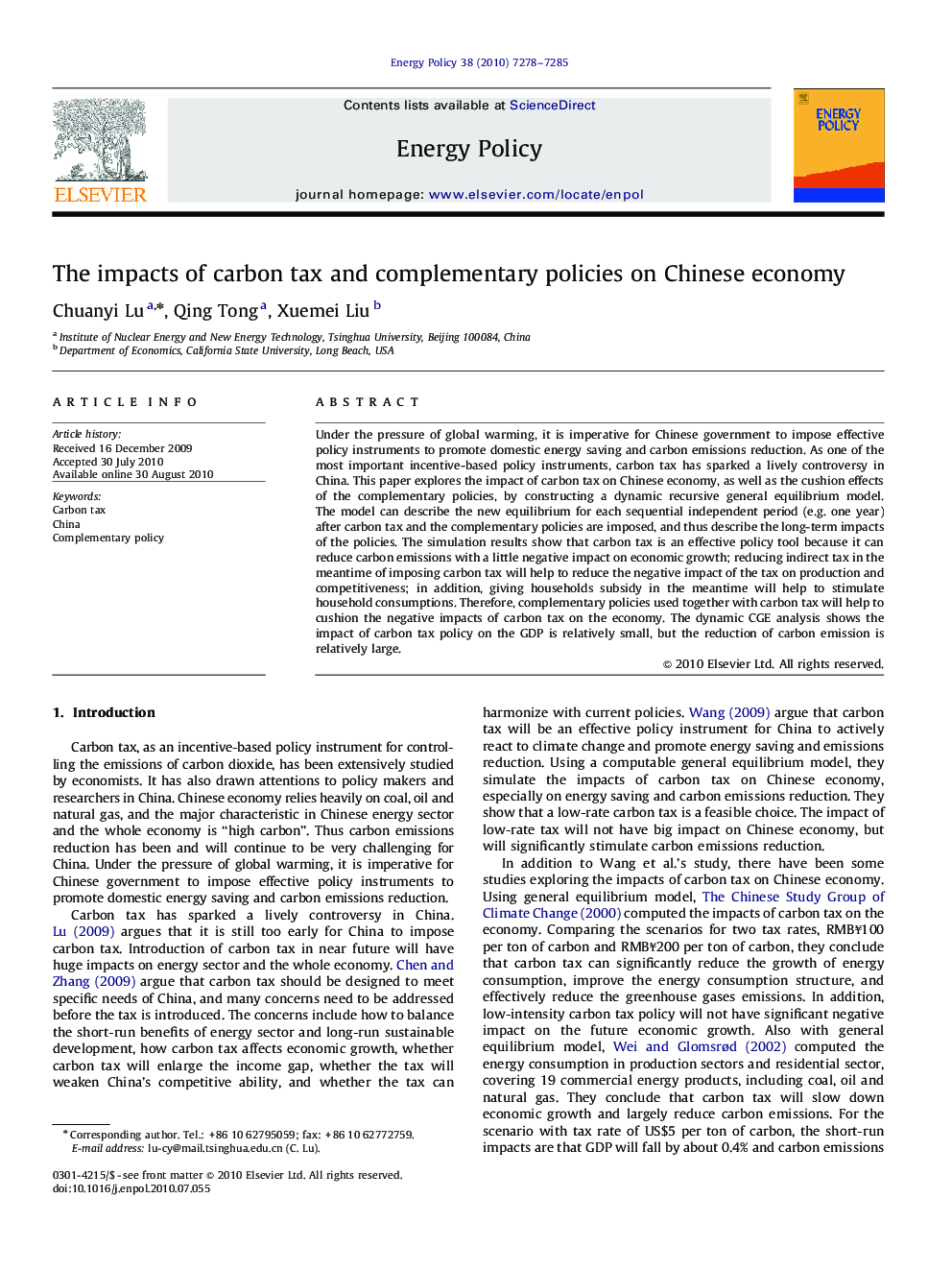| کد مقاله | کد نشریه | سال انتشار | مقاله انگلیسی | نسخه تمام متن |
|---|---|---|---|---|
| 996305 | 936293 | 2010 | 8 صفحه PDF | دانلود رایگان |

Under the pressure of global warming, it is imperative for Chinese government to impose effective policy instruments to promote domestic energy saving and carbon emissions reduction. As one of the most important incentive-based policy instruments, carbon tax has sparked a lively controversy in China. This paper explores the impact of carbon tax on Chinese economy, as well as the cushion effects of the complementary policies, by constructing a dynamic recursive general equilibrium model. The model can describe the new equilibrium for each sequential independent period (e.g. one year) after carbon tax and the complementary policies are imposed, and thus describe the long-term impacts of the policies. The simulation results show that carbon tax is an effective policy tool because it can reduce carbon emissions with a little negative impact on economic growth; reducing indirect tax in the meantime of imposing carbon tax will help to reduce the negative impact of the tax on production and competitiveness; in addition, giving households subsidy in the meantime will help to stimulate household consumptions. Therefore, complementary policies used together with carbon tax will help to cushion the negative impacts of carbon tax on the economy. The dynamic CGE analysis shows the impact of carbon tax policy on the GDP is relatively small, but the reduction of carbon emission is relatively large.
Research highlights
► Carbon tax is an effective policy tool, which generates larger carbon emission reduction with a little negative impact on economic growth.
► Carbon tax recycling to firms or households will help to reduce the impact of carbon tax on production or consumption.
► The growth rate of carbon emission is lower than that of GDP because of technology change.
► The impact of carbon tax on the GDP is relatively small, but the reduction of carbon emission is relatively large in China in the long run.
► The marginal abatement cost of carbon dioxide will rise up gradually in the long term.
Journal: Energy Policy - Volume 38, Issue 11, November 2010, Pages 7278–7285